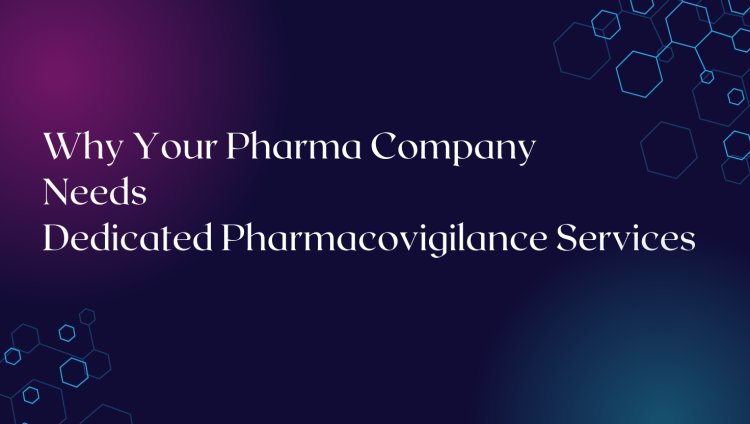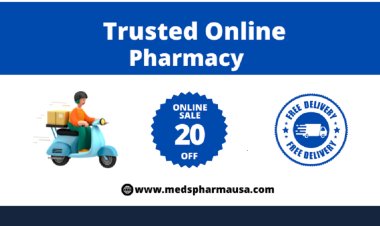Why Your Pharma Company Needs Dedicated Pharmacovigilance Services
In today’s pharmaceutical environment, treating pharmacovigilance as anything less than a core, dedicated function is a significant risk.
Share this Post to earn Money ( Upto ₹100 per 1000 Views )

The core mission of every pharmaceutical company is to improve patient health. But inherent in developing and marketing medicines is the profound responsibility to ensure their safety. As the global pharmaceutical landscape becomes increasingly complex, with faster drug development timelines, expanding markets like India, diverse data sources, and evolving regulations, managing drug safety effectively is more critical and challenging than ever.
Simply put, pharmacovigilance (PV) – the science and activities relating to the detection, assessment, understanding, and prevention of adverse effects or any other medicine-related problems – cannot be an afterthought or a secondary task handled by staff juggling other responsibilities. Your company needs dedicated pharmacovigilance services, whether built internally or outsourced to specialists
1. Patient Safety is Non-Negotiable
This is the cornerstone of pharmacovigilance. Dedicated PV services implement robust systems for collecting, analyzing, and acting upon adverse event reports from various sources (patients, healthcare professionals, literature, etc.). This constant vigilance allows for the early detection of potential safety signals, enabling timely intervention to protect patients from harm. A dedicated focus ensures that safety monitoring is proactive, systematic, and prioritised, fulfilling your ethical obligation to the patients who trust your products.
2. Navigating the Complex Web of Regulatory Compliance
Regulatory authorities worldwide, including India’s Central Drugs Standard Control Organisation (CDSCO), as well as the EMA, FDA, and others, have stringent and constantly evolving requirements for pharmacovigilance. These include specific timelines for reporting adverse events, requirements for Periodic Safety Update Reports (PSURs), Risk Management Plans (RMPs), signal management and detection activities, and maintaining detailed audit trails. Non-compliance can lead to severe consequences: hefty fines, product recalls, suspension of marketing authorizations, reputational damage, and even legal action. Dedicated PV professionals possess the specific expertise to understand and meticulously adhere to these complex regulations across different jurisdictions, ensuring your company remains compliant.
3. Managing Ever-Increasing Data Volume and Complexity
Modern pharmacovigilance deals with a deluge of data from clinical trials regulatory services, spontaneous reports, electronic health records, literature, social media, and real-world evidence (RWE). Sifting through this vast amount of information to identify genuine safety signals requires specialized skills, validated processes, and often, sophisticated analytical tools (including AI-powered solutions). A dedicated PV team or service provider has the infrastructure and expertise to manage this data effectively, differentiate noise from meaningful signals, and conduct thorough causality assessments.
4. Protecting Your Brand Reputation and Public Trust
A significant drug safety issue, especially if perceived as poorly managed, can irrevocably damage a company’s reputation and erode public and physician trust. Proactive and transparent safety monitoring, handled by a dedicated PV function, demonstrates a commitment to patient well-being. This builds confidence among stakeholders and helps mitigate reputational risk in the event of a safety concern. Effective communication during a safety issue is crucial, and a dedicated team is better equipped to manage this.
5. Supporting the Entire Product Lifecycle
Pharmacovigilance isn’t just a post-marketing activity. Safety data collected during clinical development informs the initial risk-benefit profile. Throughout the product’s life on the market, ongoing PV activities refine the understanding of its safety profile, support regulatory maintenance (like renewals of new products marketing authorizations), and can even identify opportunities for label updates or new indications. Dedicated PV services ensure continuity and robustness in safety monitoring across the entire lifecycle.
6. Accessing Specialized Expertise and Technology
Effective pharmacovigilance requires a unique blend of skills – medical knowledge, epidemiology, data analysis, regulatory affairs services expertise, and IT proficiency. It also often relies on specialized safety databases and analytical software. Building and maintaining such a diverse, expert team and the necessary technological infrastructure in-house can be challenging and expensive, especially for small to mid-sized companies. Dedicated PV services, whether internal or external, provide access to this pool of talent and technology, ensuring high-quality execution of PV tasks.
Conclusion
In today’s pharmaceutical environment, treating pharmacovigilance as anything less than a core, dedicated function is a significant risk. The potential costs of inadequate PV – financial penalties, loss of market access, reputational damage, and most importantly, patient harm – far outweigh the investment in dedicated resources.

















